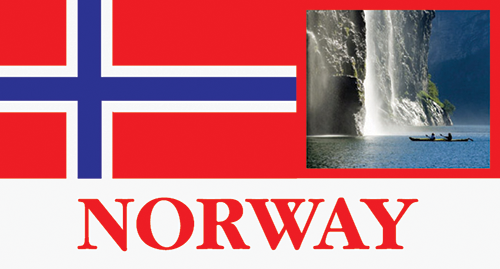


![]()
ONLINE

Innovative Value Creation
Editors’ Note
Gunn Ovesen holds an MSc degree from The Norwegian University of Science and Technology. She served as CEO of Innovation Norway from January 2004 to January 2014. Ovesen has a long track record of top management positions in various companies and organizations, such as the Norwegian Industrial and Regional Development Fund (SND), where she served as CEO; the Storebrand group; and the Vesta group. Ovesen is a member of the board at various companies and organizations, including Vålerenga Football and the Institute for Labour and Social Research, FAFO.
Organization Brief
Innovation Norway (innovasjonnorge.no) promotes profitable, nationwide industrial development to both the business economy and Norway’s national economy, and helps release the potential of different regions by contributing towards innovation, internationalization, and promotion.
How did the concept for Innovation Norway originate and is it a governmental organization?
We are the government’s organization for value creation. And to do value creation, you have to be innovative.
Norway is not a large country. How might that be an advantage for one looking to do business here?
There are only five million people in Norway, which is about one-third the people in metropolitan New York City. This is a strength for Norway because if you want to get something done, it’s easy to get to the necessary people.
How did you get to be so important at such a young age? You must be eating a lot of lutefisk.
Cod liver oil. It’s based on drive. I meet people who are 80 who are young and vibrant, and I meet people who are 30 and who seem to be more or less dead. Age as a number really doesn’t matter – it’s how people react to events.
Many Norwegians have recently been added to the billionaire list, not only because of oil but because of real estate and hotels.
Yes, but in Norway, our businesses are built out of our strength, which has been the commodities around Norway. We have hydroelectric power, which is more or less 100 percent of the electricity you need.
Norwegian industry at the end of the 18th century and the beginning of 19th century was built out of hydro energy. The plants are in the small valleys.
Would you highlight Norway’s key industries?
We have exported fish since the Middle Ages. It was good for Norway that, in the Middle Ages, people in Europe were Catholic and they had to eat fish more than 100 days per year. Fresh fish was not transportable, so we dried our fish for export to be eaten later.
In the U.S., you still make jokes about lutefisk, which is dried cod and bakalhau which is dried salted cod.
Then we have shipping and transportation. We have been working with ships since the Viking age. The Norwegian shipbuilding method for the Viking ships utilized logs that were cut in such that it made the ships very flexible so they could move faster than any other boats of that time and this helped us be good merchants.
Then, when shipping was declining and fishing was not doing well, we were fortunate to find oil in 1969. This allowed Norway to become one of the few countries that has successfully built an industry around supplying the oil industry.
We have a high-cost level in Norway and, therefore, need an industry that is technologically on a high level. We just cannot afford to have a low-skilled industry.
In 2012, our largest export was related to supplying the oil and gas industry.
When you say supply, you mean things involved in exploration?
When you drill underwater today, you don’t have anything on top of the water. All of these stations are fully underwater, We have sorted out everything and integrated operations, so everything is run from a ship.
Is Norway still a good place to invest as far as the oil industry?
I think so. They are still doing well. There are a lot of general meetings for the industry in Oslo as well as in other areas outside of the city that are unusual and full of Norwegian life.
It is also driven by companies like Facebook and Google that need to have large facilities for all of their machines. They want to have them somewhere where they have renewable energy from a variety of sources, and Norway can offer this.
How do you work towards growing small businesses?
We have offices all over the world as well as offices all over Norway. Because we are an industrial bank for Norwegian businesses, we are an export consult – that is our offices abroad – and a tourist bureau.
When a Norwegian person has an idea, they often come to our offices and ask for advice. We may finance them through grants or loans, and when they start growing, we help them expand.
So we work with them from the original idea until they are a global company. Unfortunately, we don’t have that many big global companies but we are working towards that.
You have a twinkle in your eye when you talk about Norway.
Yes, the economists have a whole picture about the Scandinavian economies, and it’s intriguing. How can an economy of a small country where everything is regulated and where we pay high taxes be the economy that is doing best in the world?
One reason is the way this country is run: The differences between the rich and poor in Norway are small compared with other countries. When we pay taxes, we get all our school programs and health care taken care of. People don’t complain about the tax level because they see we get something back.
The difference between my salary and the lowest salary in our companies is very small. The small differences are good in Norwegian society because it means we all have to participate.•